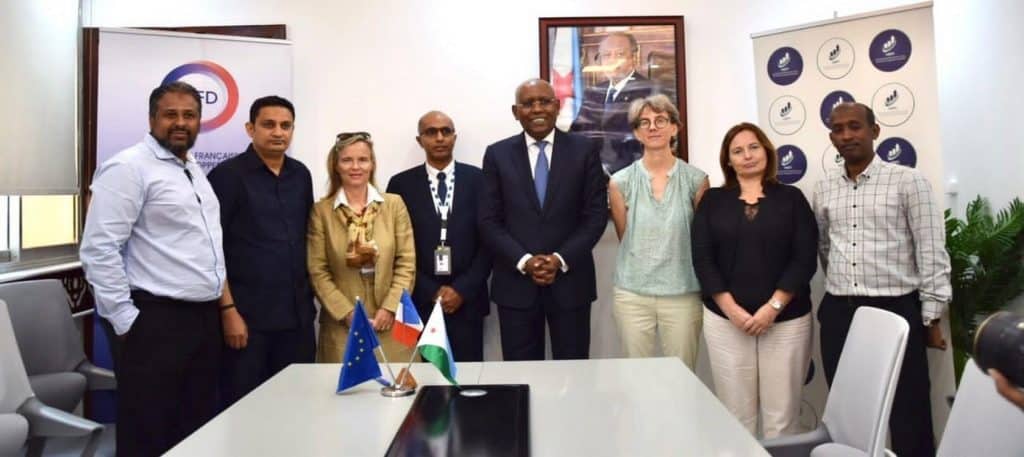The French Development Agency (AFD) and the European Union (EU) are financing water and liquid sanitation in Djibouti. The two institutions have just granted 40 million euros in financing to this East African country. The financing agreements were signed on 7 October 2022 between the EU delegation in Djibouti, AFD and the Djibouti Ministry of Economy and Finance in charge of Industry.
The financing will support the Djibouti National Water and Sanitation Office (ONEAD) in its regalian missions of water supply and sanitation. Of the 40 million euros, a 15 million euro grant, including 10 million euros from AFD and 5 million euros from the EU, will be used to build ONEAD’s staff capacities and improve the operating conditions of its water service. The remaining €25 million will be divided between two programmes.
The Djibouti Sewerage Extension and Rehabilitation Programme (PERRAD III), which is in its third phase, will be financed to the tune of €15 million. This part of the programme aims to extend the collective sewerage network in five districts of the city of Djibouti, which will benefit around 30,000 people.
Avoiding the discharge of 1,300 m3 of effluent per day
The programme has also enabled the construction of new connection boxes in two additional neighbourhoods in Djibouti, such as Q5 and Q6, which are located in high groundwater areas. These devices allow wastewater to be channelled to the Douda treatment plant, which has a capacity of 3,700 m3 per day.
By improving access to liquid sanitation in Djibouti, the government is aiming for more sustainable cities, as well as reducing river pollution. Onead will use the remaining €10 million of the €25 million loan to collect effluent from several neighbourhoods in Balbala Sud to its new treatment plant, benefiting more than 20,000 people.
Read also –
This work will prevent the discharge of 1,300 m3 of untreated wastewater per day into the environment. The Djibouti authorities aim to reuse the effluent over the next few years for the irrigation of agricultural plots in response to the drought.
Inès Magoum
